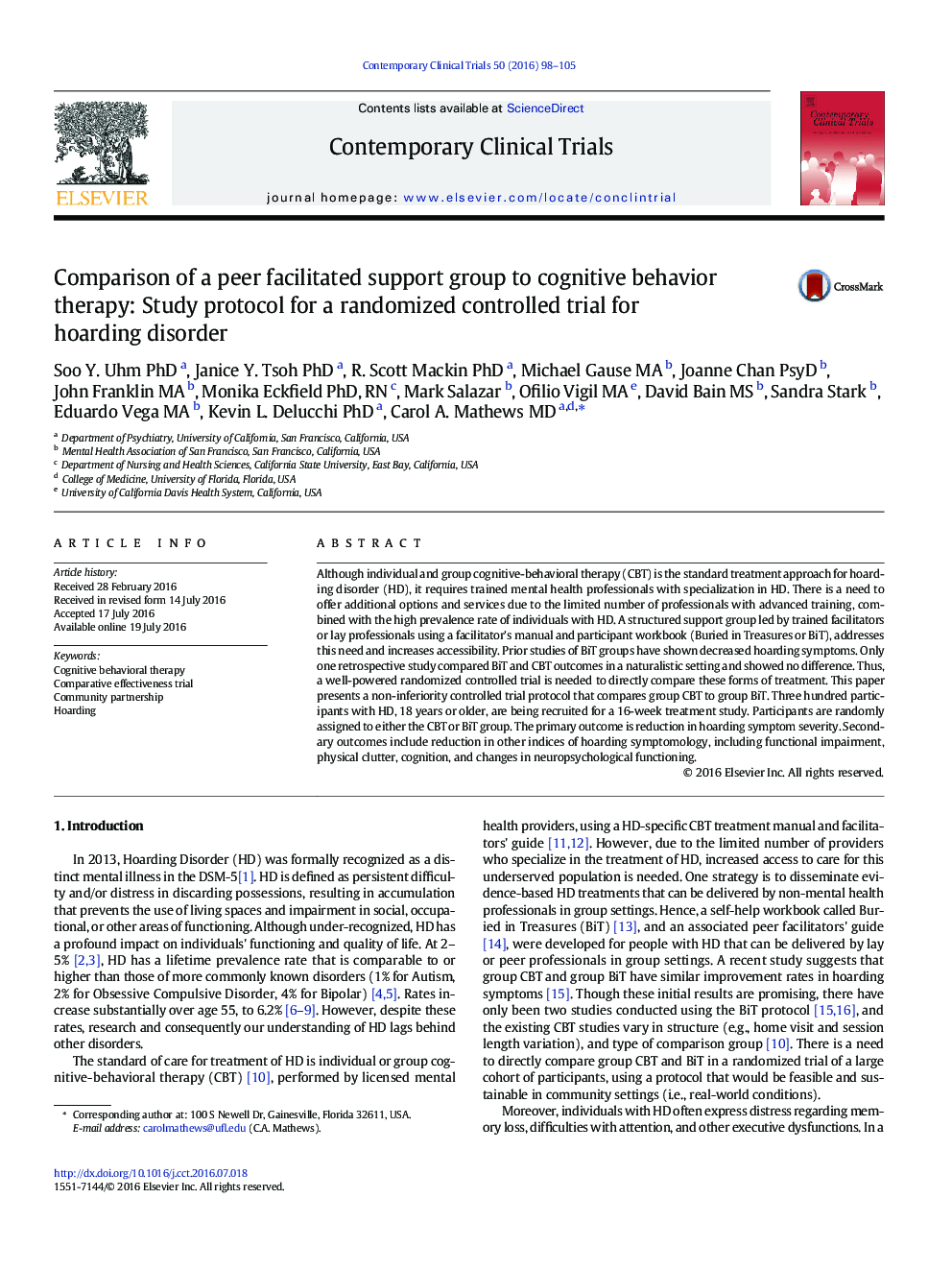| Article ID | Journal | Published Year | Pages | File Type |
|---|---|---|---|---|
| 3462599 | Contemporary Clinical Trials | 2016 | 8 Pages |
Although individual and group cognitive-behavioral therapy (CBT) is the standard treatment approach for hoarding disorder (HD), it requires trained mental health professionals with specialization in HD. There is a need to offer additional options and services due to the limited number of professionals with advanced training, combined with the high prevalence rate of individuals with HD. A structured support group led by trained facilitators or lay professionals using a facilitator's manual and participant workbook (Buried in Treasures or BiT), addresses this need and increases accessibility. Prior studies of BiT groups have shown decreased hoarding symptoms. Only one retrospective study compared BiT and CBT outcomes in a naturalistic setting and showed no difference. Thus, a well-powered randomized controlled trial is needed to directly compare these forms of treatment. This paper presents a non-inferiority controlled trial protocol that compares group CBT to group BiT. Three hundred participants with HD, 18 years or older, are being recruited for a 16-week treatment study. Participants are randomly assigned to either the CBT or BiT group. The primary outcome is reduction in hoarding symptom severity. Secondary outcomes include reduction in other indices of hoarding symptomology, including functional impairment, physical clutter, cognition, and changes in neuropsychological functioning.
